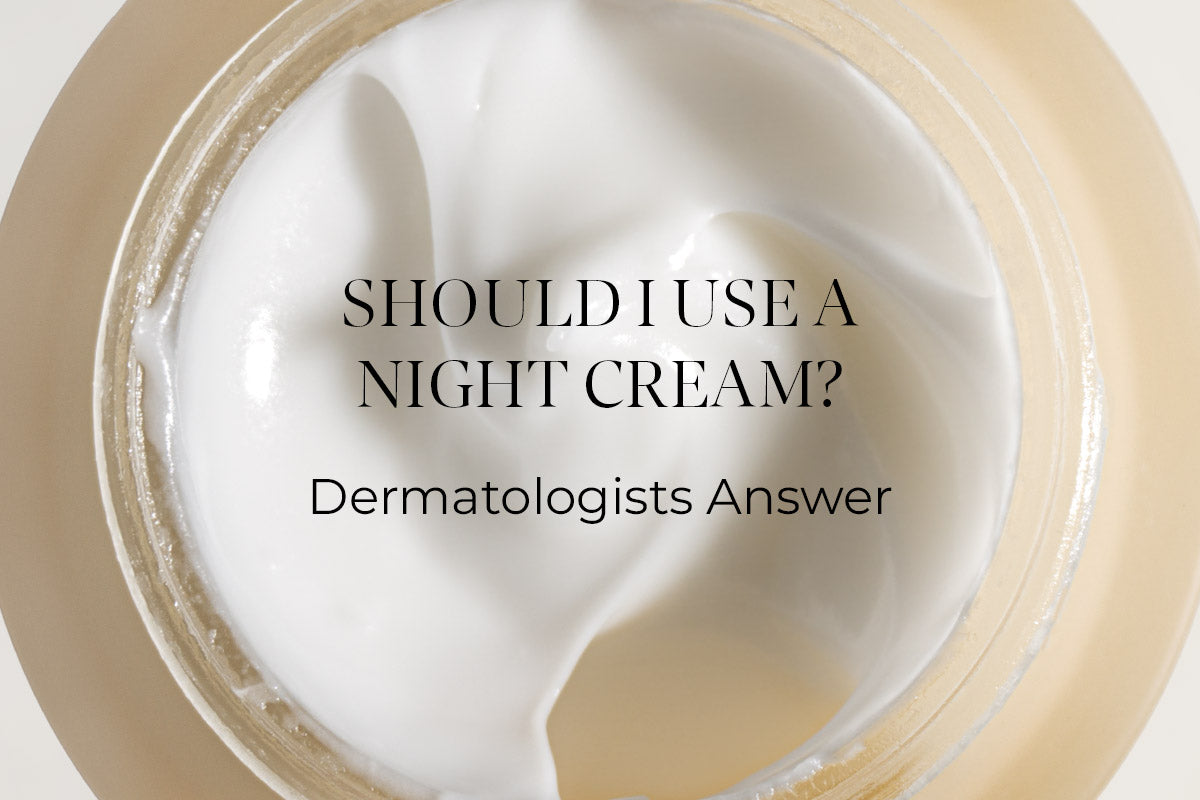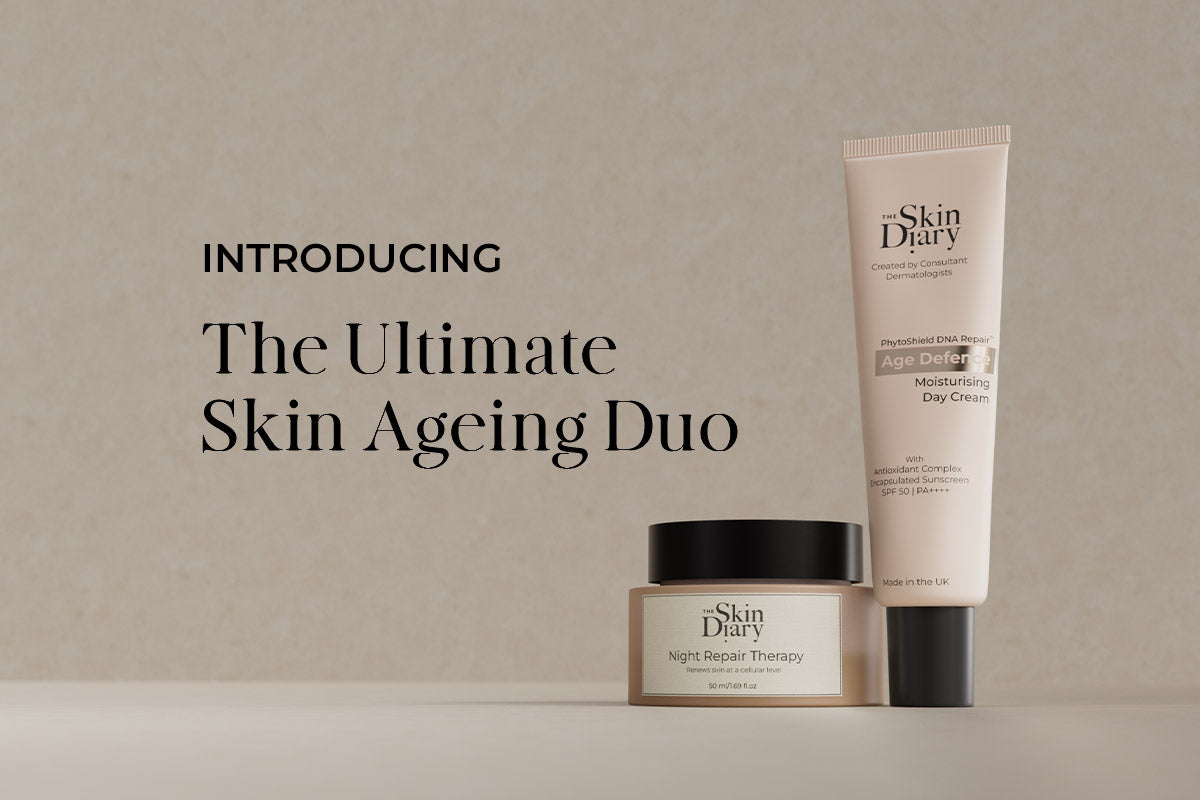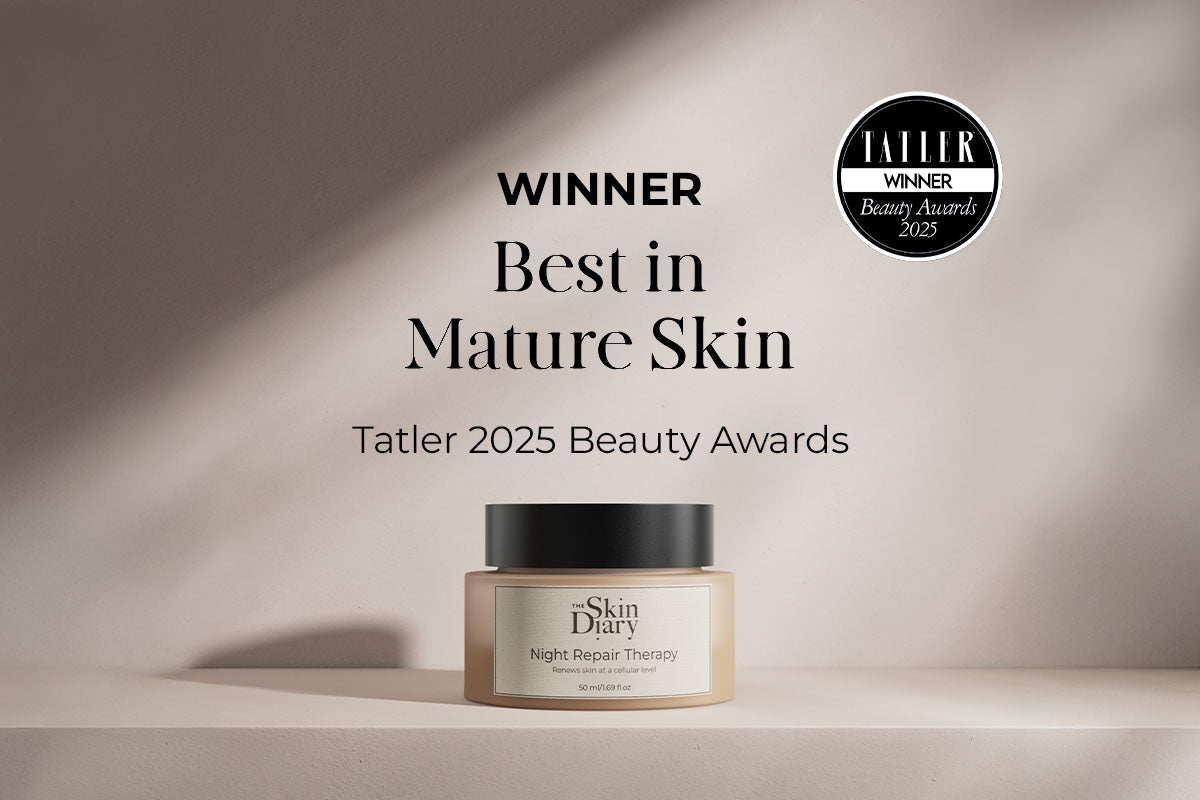One question we’re often asked is whether someone ‘needs’ a night cream. Now, the phrasing around ‘need’ can be a little tricky because it’s so subjective and we’re not going to blanket tell anyone they ‘need’ products (unless it’s UV clothing and sunscreen, then we might). What we are going to talk about is what a night cream is, why you might want to consider adding a night cream into your skincare routine if maintaining a healthy skin routine is a priority.
Do Night Creams Aid Barrier Repair
Let’s start with barrier repair because it’s the basis of healthy skin. The skin is a barrier organ with its primary function being protecting against the environment. The skin is exposed to intrinsic and extrinsic ageing. Our skin goes through a lot so protecting this barrier is important.
Elements of our innate immune system live within our skin. A malfunction (i.e. a damaged barrier) can then lead to an inadequate response. As we age, this barrier can weaken overtime as many of our body’s systems do.
Although there’s still a lot to learn about the topic, inflammaging is a culprit for impairment of barrier function and degradation of collagen and elastin. It’s defined as sterile, slowly progressive, low-grade systemic inflammation closely intertwined with immunosenescence. This means that, as we age, inflammation relating to your skin can actually impact the rest of your body, too. A strong barrier can help prevent this inflammation.
This demonstrates that there’s benefit to skincare and a night cream beyond cosmetic elements. Of course, many of us want to look well-rested and you may even want to keep fine lines and wrinkles to a minimum, but there’s good reason to care for our skin in order to avoid more widespread issues.
The good news is that there are tools to equip our skin to better deal with these elements of ageing by building a resilient barrier. And in even better news, it’s easier to do this than you might think. A good night cream is a fantastic place to start. Something that contains ingredients like ceramides, glycerin, hyaluronic acid and niacinamide (to name a few) help keep the skin moisturised and protect that barrier.

Do Night Creams Repair Overnight?
The second reason a night cream is brilliant is due to skin repair overnight. It’s true that the skin absorbs products more effectively overnight. Why is this great? Well, it’s pretty hard for ingredients to penetrate the skin. As discussed above, our skin acts as a barrier and does a brilliant job at that. So when you want your ingredients to really work, utilising this time during sleep is great for better absorption. When you’re sleeping, think of your skin optimised for repair naturally so when you throw excellent ingredients into the mix too, it’s a win win.
If you’re hoping to target fine lines and wrinkles through a night cream, one of the best options is getting a formula that contains retinoids. Night Repair Therapy contains both restorative ingredients like ceramides (which, as we’ve mentioned above is great for skin barrier repair) and reparative ingredients like cell-communicating peptides and retinal-ester. This helps to protect and repair cells, reversing sun damage and signs of ageing.
So, why use a night cream? In short: If you’re looking to protect that precious barrier and give your skin the best chance to fight infection and inflammation (particularly as you age) while looking its best, a night cream is a great addition to your routine.
You can choose something that solely focuses on moisturising or you can choose a formula that contains active ingredients working synergistically to deliver multiple benefits to the skin.
Sources
Khalid KA, Mohd Nawi AF, Zulkifli N, Barkat MA, Hadi H. Aging and wound healing of the skin: a review of clinical and pathophysiological hallmarks. Life (Basel). 2022 Dec 19;12(12):2142. doi: 10.3390/life12122142. PMID: 36556508; PMCID: PMC9784880.
Pająk J, Nowicka D, Szepietowski JC. Inflammaging and immunosenescence as part of skin aging—a narrative review. Int J Mol Sci. 2023 Apr 24;24(9):7784. doi: 10.3390/ijms24097784. PMID: 37175491; PMCID: PMC10178737
Plikus MV, Van Spyk EN, Pham K, Geyfman M, Kumar V, Takahashi JS, Andersen B. The circadian clock in skin: implications for adult stem cells, tissue regeneration, cancer, aging, and immunity. J Biol Rhythms. 2015 Jun;30(3):163-82. doi: 10.1177/0748730414563537. Epub 2015 Jan 13. PMID: 25589491; PMCID: PMC4441597.





